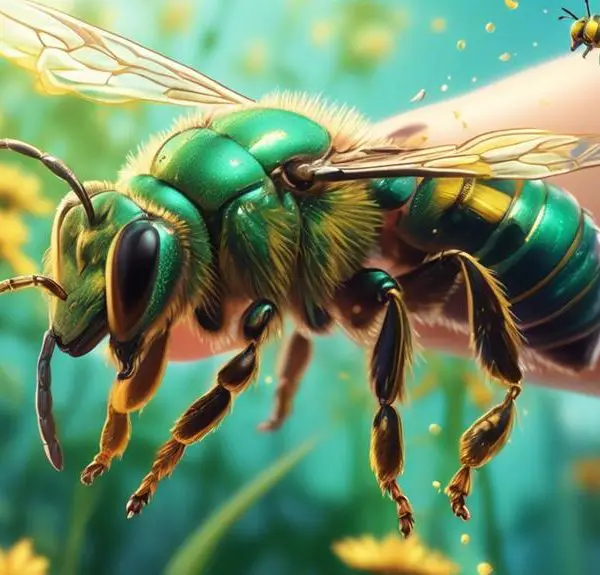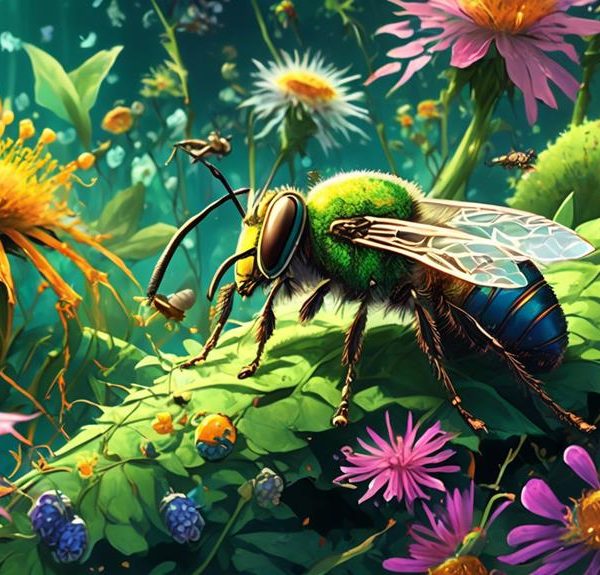Marvel at the complex world of sweat bees, their vital role in our ecosystem, and the surprising intricacies surrounding their legal protection status.
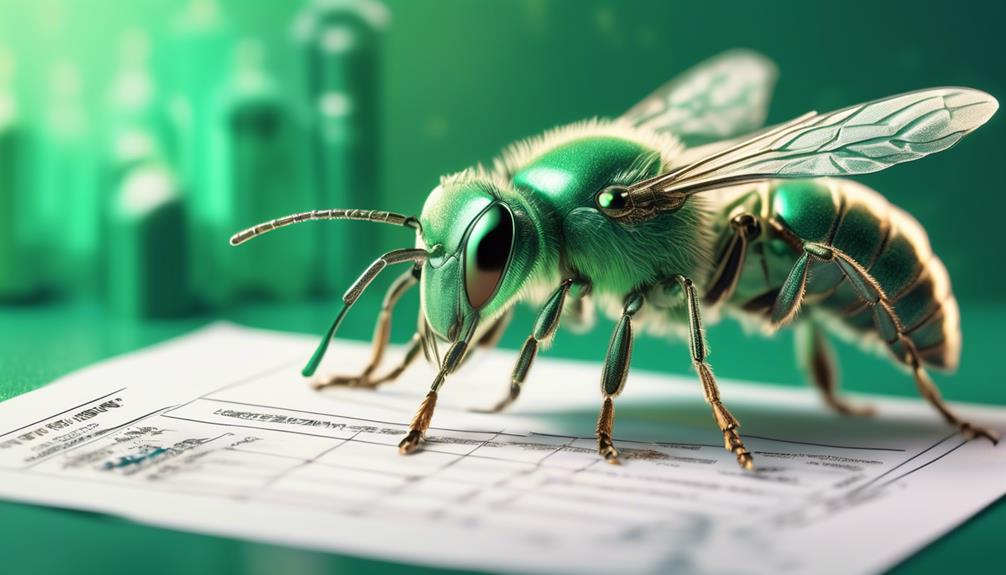
Are Sweat Bees Protected
While you might initially dismiss sweat bees as merely annoying pests, it's crucial to recognize their significant role in our ecosystem. As pollinators, they're instrumental in the cultivation of various fruits, vegetables, and flowers.
However, the question arises: are these industrious insects legally protected? The answer isn't as straightforward as you might think. As we explore the world of sweat bees, their threats, and their protection status, you'll discover the intricate balance between human activity and the survival of these tiny, yet essential creatures.
Key Takeaways
- Sweat bees play a crucial role in pollinating garden plants and contribute to the production of food crops.
- Sweat bee species face threats such as habitat destruction, pesticide use, climate change, urbanization, and deforestation.
- Sweat bees are not specifically protected by federal law in the US, but some states have regulations to safeguard certain bee species.
- Conservation efforts for sweat bees include habitat restoration initiatives, education programs, creating bee-friendly spaces, supporting organizations, and spreading information.
Understanding Sweat Bees
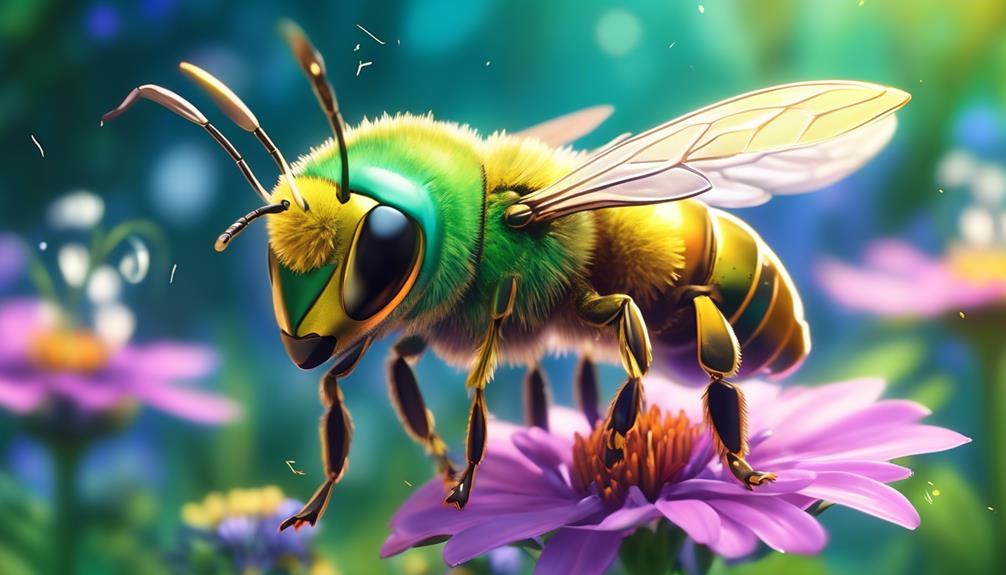
Despite their rather off-putting name, sweat bees are fascinating creatures that could be buzzing right in your backyard. They're small, often colorful insects that belong to the Halictidae family. You mightn't have noticed them because they're not as flashy or as big as honeybees or bumblebees, yet they play a crucial role in pollinating your garden plants.
Don't be intimidated by the 'sweat' part of their name. They're named so because they're attracted to human sweat, which they use as a source of moisture and salt. However, they're usually harmless and only sting when threatened. So, if you stay calm, they won't bother you.
Understanding their life cycle gives you a whole new perspective. It starts when the queen lays her eggs in the ground, creating a new colony. The eggs develop into larvae, then pupae before maturing into adult bees. They spend the winter hibernating underground, then emerge in the spring to start the cycle again.
Sweat Bees' Role in Ecosystem
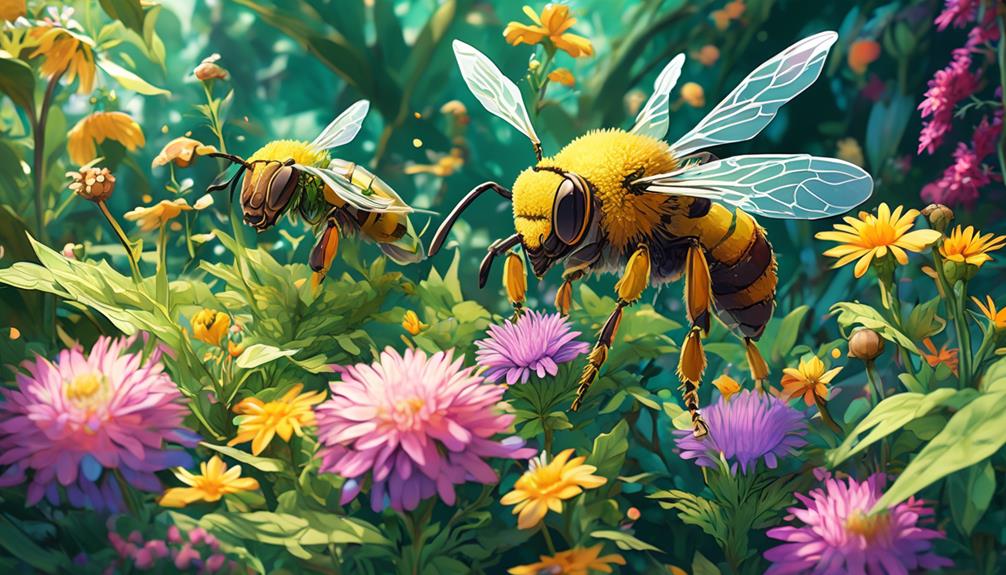
You mightn't realize it, but sweat bees play a vital role in our ecosystem, particularly in plant pollination. These small creatures, often overlooked, are key pollinators. They're attracted to the salt in human sweat, hence their unique name, but their real job lies in the plant world.
As they flit from flower to flower seeking nectar, they inadvertently transfer pollen. This enables plants to reproduce and bear fruit. It's a crucial job because a large portion of the world's food crops relies on pollinators like sweat bees.
Sweat bees don't just help in food production; they're also integral to maintaining biodiversity. In their quest for nectar, they pollinate a variety of plants, aiding in the continuation of various plant species. Without them, many plant species could potentially die out, leading to a knock-on effect on the animals that rely on those plants for survival.
Threats to Sweat Bee Species
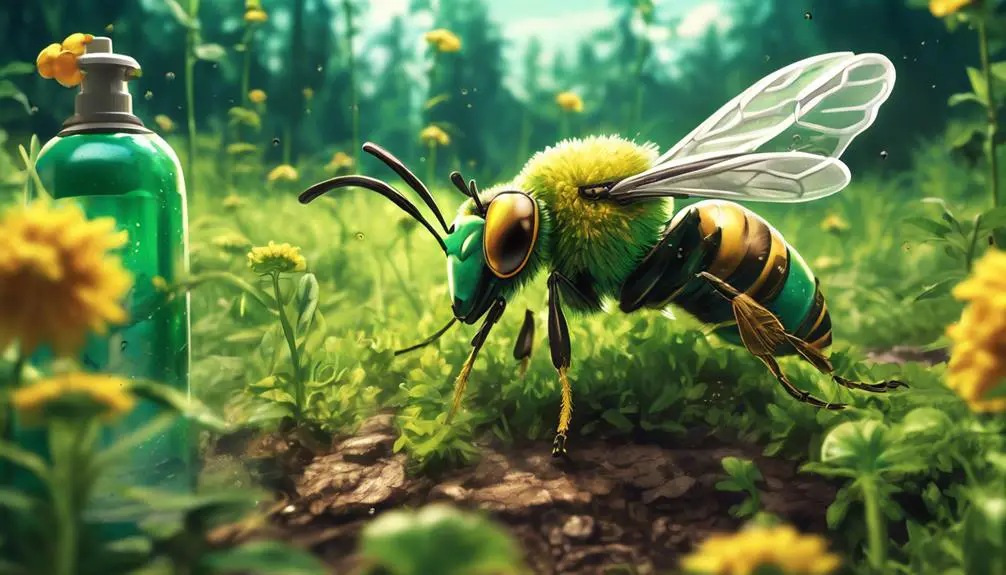
While sweat bees are integral to our ecosystems, they're facing a range of threats that could jeopardize their survival and, in turn, the health of our planet. You must be aware that these threats are directly linked to human actions.
- Habitat Destruction: Urbanization and deforestation are reducing the natural habitats of sweat bees. As we clear land for agriculture or buildings, we're destroying the nesting and foraging sites these bees need to survive.
- Pesticides: The widespread use of pesticides in agriculture is another major threat. These chemicals aren't just killing off pests, they're also harming beneficial insects like sweat bees. Pesticides can cause immediate death or slow, agonizing decline as they interfere with a bee's ability to feed, reproduce, and defend itself.
- Climate Change: Bees are sensitive to changes in temperature and weather patterns. As global temperatures rise, sweat bees may struggle to adapt, causing their numbers to plummet.
Legal Status of Sweat Bees
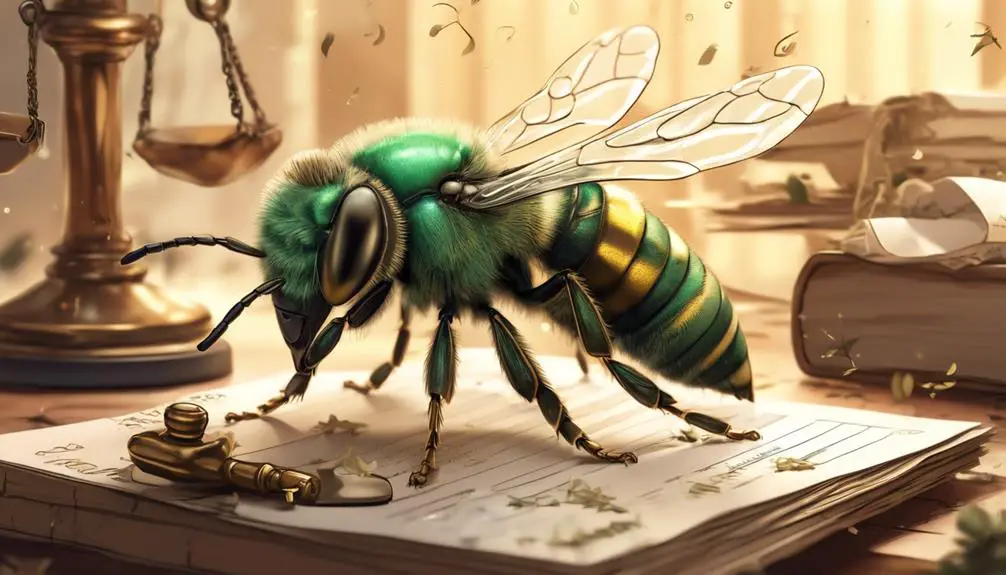
In terms of legal protection, sweat bees don't have a blanket status across the globe. Their protection varies from country to country, and often, from state to state within those countries.
In the United States, for instance, you'll find that sweat bees aren't specifically protected by federal law. However, some states have regulations in place to safeguard certain bee species, so it's essential to check local ordinances.
In contrast, European nations are more proactive in their bee conservation efforts. Countries like the UK have enacted strict policies to protect all bee species, including sweat bees. They've recognized the integral role bees play in pollination and the wider ecosystem.
But, remember, just because there isn't a law doesn't mean you shouldn't care. Take steps to protect sweat bees in your own backyard. Plant local flowers, avoid pesticides, and create habitats for them.
Legal protection is significant, but your actions make a real difference too.
Conservation Efforts for Sweat Bees
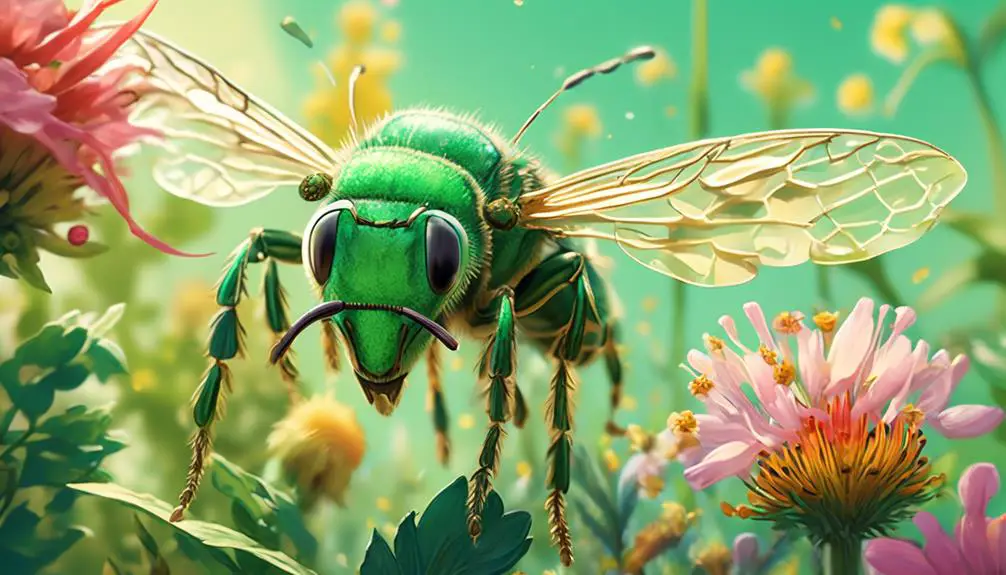
Building on the importance of personal efforts, let's explore conservation initiatives that are currently helping to protect sweat bees. These tiny pollinators are crucial for ecosystem balance, but they're often overlooked in conservation plans.
To ensure we're doing our part in saving these bees, here are three efforts you can get involved in:
- Habitat Restoration: Many institutions and NGOs are working hard to restore natural habitats that sweat bees thrive in. You can support these organizations either through donations or by volunteering your time for hands-on activities.
- Education: Spreading awareness about the importance of sweat bees is a vital step in their conservation. You can participate in educational programs, share information on social media, and even teach your kids about these wonderful creatures.
- Creating Bee-Friendly Spaces: You can transform your garden into a haven for sweat bees by planting native flowers and providing small patches of bare, undisturbed soil for nesting.
Conclusion
So, you've learned a bit about sweat bees, their importance in our ecosystem, and the threats they face. They aren't legally protected, but there are efforts to conserve them.
It's crucial for us to understand their role and safeguard these tiny pollinators. After all, they're part of our world's biodiversity, and every creature has a part to play.
Let's do our part and support these unsung heroes of the insect world.

